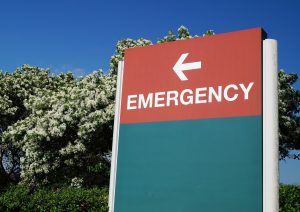Emergency Physician Shortages Worsening in Rural America

The number of emergency medicine physicians in the United States has increased in the past few years. But for rural areas, the reality is quite the opposite. Rural communities have experienced ER staffing shortages for several years now, and the problem is expected to worsen as a generation of rural doctors retires. According to a recent study published in the Annals of Emergency Medicine, of the 48,835 clinically active emergency physicians in the United States, 92% (44,908) practice in urban areas with just 8% (3,927) practicing in rural communities. That’s down from 10% in 2008.
The study further found that the median age for urban emergency physicians is 50 years old, while the median age in large rural communities is 58 years old, and 62 years old in smaller rural communities. Unfortunately, without a viable workforce solution, staffing shortages in rural ERs may continue as the analysis also shows that 96% of the emergency medicine residency or fellowship graduates within the past four years practice in more urban areas.
“Demand for emergency care in rural areas will remain high while emergency physician shortages in these communities continues to pose significant challenges for health systems and patients,” said Christopher Bennett, MD, MA, assistant professor of emergency medicine at Stanford University School of Medicine and lead study author.
Rural Emergency Medicine Needs Qualified Primary Care Physicians
To fill the workplace gap, rural emergency departments have long relied on the services of primary care trained doctors. Though not residency-trained in emergency medicine, primary care doctors who have spent significant time in the ER have proven to be highly qualified at delivering safe and effective emergency care. One such program that gives cause for optimism is the Monroe Clinic Emergency Medicine Fellowship in Monroe, WI, which is recognized by the American Academy of Emergency Physicians (AAEP). The AAEP recognizes teaching hospitals and medical schools that offer distinguished emergency medicine fellowships for primary care physicians. Completion of an AAEP-approved program enables graduate fellows to apply for certification with the Board of Certification in Emergency Medicine (BCEM).
How BCEM Certification Can Help Solve the Emergency Physician Shortage
If you are a rural emergency physician who is certified in a primary care specialty, you can apply for BCEM certification in one of two ways. Either complete an AAEP-approved emergency medicine fellowship or apply through the “practice track,” which requires five years of emergency medicine practice with at least 7,000 hours of emergency department coverage, letters of support, and case reports. To earn BCEM certification, candidates in either pathway must pass both a written and oral examination.
According to the Monroe Clinic, “The breadth of training in primary care medicine makes the family physician a nearly ideal provider of emergency services in rural areas, where the ER is often the only access to health care. In fact, family physicians and other primary care doctors provide a wide spectrum of medical care in rural ERs, including most of the emergency care. That’s why we feel strongly that some type of advanced training/fellowship or certification is needed to ensure rural hospitals have access to well-trained EM physicians.”
The Importance of BCEM Certification
A Member Board of the American Board of Physician Specialties® (ABPS), the BCEM has been responding to the certification and recertification needs of emergency department doctors since 1989. Certification with the BCEM, a Member Board of the ABPS, recognizes physicians as eminently qualified EM professionals, positions them as leaders in the healthcare community, and broadens their opportunities for career advancement. BCEM certification demonstrates to current and prospective employers alike that a physician has talent and skills that are on par with residency-trained ER specialists.
Primary care physicians with at least five years of full-time practice in EM and at least 7,000 hours practicing the specialty are also encouraged to apply for certification with the BCEM. Primary care physicians with at least five years of full-time practice in EM and at least 7,000 hours practicing the specialty are also encouraged to apply for certification with the BCEM. You can find more information about the BCEM’s eligibility requirements here.
If you would like more information about AAEP-approved fellowship programs or the eligibility requirements for BCEM certification, contact the ABPS today.






